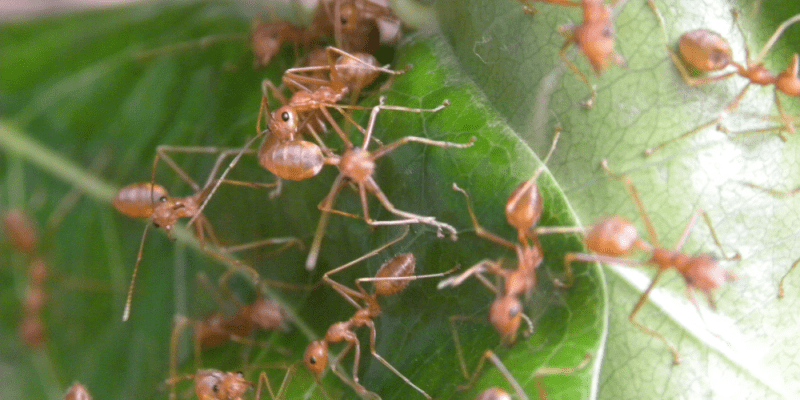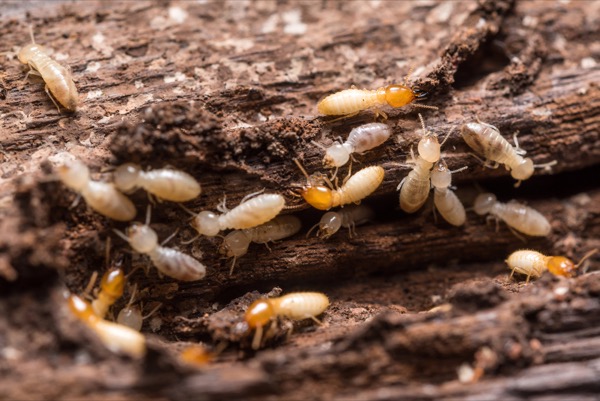Comprehensive Termite Control: Shield Your Home with Specialist Services
Comprehensive Termite Control: Shield Your Home with Specialist Services
Blog Article
Ecological Effect of Insect Control: Balancing Effectiveness With Sustainability
The environmental impact of insect control is an essential issue that requires a delicate equilibrium in between attaining performance in making certain and handling bugs sustainability of our environments. As we strive to protect our plants, homes, and health and wellness from the risks posed by bugs, the approaches we utilize can inadvertently harm the environment. From the usage of harmful chemicals that seep into our dirt and water to the unplanned repercussions on non-target species, the effects of traditional insect control methods are far-ranging. Nonetheless, there are arising strategies that offer wish for a more lasting strategy to pest monitoring. These options not only purpose to address the prompt pest troubles but additionally consider the lasting health and wellness of our world.
Hazardous Chemicals in Pest Control
The use of damaging chemicals in insect control poses considerable environmental and health risks that call for careful consideration and mitigation methods. Chemicals, insecticides, and herbicides are generally made use of to get rid of parasites, yet their prevalent application can cause unintentional effects. These chemicals can pollute soil, water sources, and the air, affecting not just the targeted bugs yet also valuable bugs, wild animals, and people.

To deal with these dangers, incorporated parasite management (IPM) strategies are being advertised as an extra sustainable choice. IPM involves a combination of techniques such as organic control, environment manipulation, and the targeted use of chemicals as a last option (ant control lexington nc). By taking on a holistic strategy to pest control, we can lessen the environmental and wellness impacts connected with hazardous chemicals while properly taking care of pest populaces
Influence on Non-Target Variety
Considering the unintended repercussions of parasite control methods, the effect on non-target types is an important element that needs complete analysis. While insect control actions intend to target specific insects, other microorganisms in the ecosystem may be accidentally influenced. Non-target species, consisting of helpful bugs, birds, animals, and even plants, can suffer indirect or direct harm from chemical applications or organic control approaches.
Pesticides can have sub-lethal or lethal results on non-target varieties. Insecticides developed to combat a particular bug parasite may damage pollinators like bees or natural killers such as ladybugs. In addition, chemical deposits can collect in the environment, impacting non-target microorganisms over time. Similarly, organic control agents, if not species-specific, can posture dangers to unexpected targets, interfering with the eco-friendly balance.
To alleviate the influence on non-target types, integrated parasite administration (IPM) techniques that highlight an all natural strategy to pest control are recommended. These methods prioritize using ecologically friendly practices, lessening damage to helpful microorganisms while successfully handling pest populaces. Performing complete threat evaluations and monitoring the outcomes of insect control efforts are necessary action in safeguarding non-target types and advertising total environment health and wellness.
Dirt and Water Contamination
Unintentional environmental consequences of bug control methods extend beyond impacting non-target types, with considerable ramifications for dirt and water contamination - ant control. Chemicals, herbicides, and chemical plant foods utilized in pest control can seep into the dirt and contaminate groundwater, posturing a danger to both terrestrial and water ecological communities.
Water contamination is another essential problem linked with parasite control techniques. To alleviate dirt and water contamination from parasite control activities, integrated parasite management strategies that prioritize sustainability and decrease chemical inputs are essential.
Air Pollution From Chemical Use
Exposure to air-borne informative post pesticides throughout farming applications positions a substantial worry for air contamination control steps. In addition, pesticide drift, where chemicals are brought by the wind to unplanned areas, can lead to the contamination of nearby ecosystems and water bodies.

Techniques for Lasting Pest Control
In the world of agricultural techniques, carrying out lasting insect control approaches is vital for maintaining ecological equilibrium and safeguarding plant yields. Sustainable pest control emphasizes using eco-friendly techniques to manage parasite populaces properly while decreasing damage to non-target organisms and ecosystems. Integrated Bug Management (IPM) is a commonly taken on technique that incorporates biological, social, physical, and chemical control approaches to achieve long-lasting parasite management options.
Plant rotation and diversity are also reliable methods to disrupt pest life cycles and develop less desirable conditions for parasites to flourish. Ultimately, by incorporating these lasting insect control approaches, farmers can achieve an equilibrium between pest monitoring effectiveness and ecological stewardship.
Conclusion
To conclude, the environmental effect of pest control techniques must be meticulously thought about to stabilize effectiveness with sustainability. Dangerous chemicals used in bug control can result in dirt and water contamination, air pollution, and injury non-target types - termite control. It is essential to implement lasting pest control approaches to reduce these negative effects on the setting and advertise a healthier community for future generations
By adopting a holistic approach to pest control, we can lessen the environmental and health and wellness influences connected with unsafe chemicals while efficiently handling pest populations.

To alleviate the air pollution created by pesticide usage, it is important to take on integrated bug management methods that prioritize the usage of non-chemical pest control techniques, such as plant rotation, all-natural predators, and resistant plant varieties. Lasting bug control emphasizes the usage of ecologically friendly techniques to take care of insect populaces successfully while reducing injury to non-target organisms and ecosystems. Integrated Parasite Management (IPM) is an extensively adopted approach that incorporates biological, cultural, physical, and chemical control techniques to attain lasting pest administration remedies.
Report this page